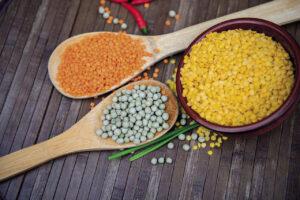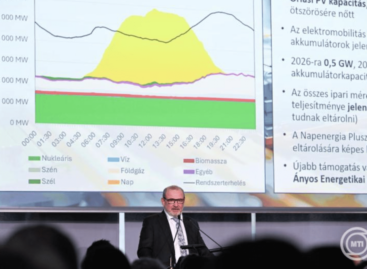The EU has approved a new feed additive: this is how L-arginine affects animal health
The European Union has authorized the use of L-arginine as a feed additive, which offers new opportunities for a balanced amino acid supply for farm animals, according to reports from Agrársektor and Infostart. According to the new regulation, L-arginine produced by Escherichia coli CGMCC 7.401 can be used in the feed of all animal species, and the regulation will be mandatory in all EU member states from April 22, 2025.
 Known as a building block of proteins, L-arginine is particularly important in regulating cardiovascular functions and kidney function. Krisztián Czompó, Sales and Innovation Director of Bonafarm-Bábolna Takarmány Kft., explained: L-arginine is an essential amino acid that plays a role in protein synthesis, metabolism, growth, immune system function, and also in maintaining vascular health through nitric oxide biosynthesis.
Known as a building block of proteins, L-arginine is particularly important in regulating cardiovascular functions and kidney function. Krisztián Czompó, Sales and Innovation Director of Bonafarm-Bábolna Takarmány Kft., explained: L-arginine is an essential amino acid that plays a role in protein synthesis, metabolism, growth, immune system function, and also in maintaining vascular health through nitric oxide biosynthesis.
The role of L-arginine in animal nutrition has become particularly important because animal protein sources, such as meat meal, are increasingly being relegated to the background in feeding. In parallel, plant-based diets have come to the fore, which at the same time require a diet with a higher crude protein content to meet the animals’ total amino acid needs. The use of synthetic amino acids, such as L-arginine, makes it possible to ensure the necessary amino acid supply even with feeds with a lower total protein content.
Krisztián Czompó emphasized that if the feed of farm animals is properly composed, amino acid deficiency rarely causes a problem. However, the use of L-arginine can further improve the general health and performance of animals, especially in modern, more sustainable feeding systems.
The authorization of the new additive is part of the innovation efforts of the EU agricultural sector, which aims to increase the efficiency of feeding and reduce the environmental burden.
Related news
The economic sentiment index deteriorated in the euro area and the EU in February, but improved in Hungary
🎧 Hallgasd a cikket: Lejátszás Szünet Folytatás Leállítás Nyelv: Auto…
Read more >EU adopts rule to prevent destruction of unsold clothing
🎧 Hallgasd a cikket: Lejátszás Szünet Folytatás Leállítás Nyelv: Auto…
Read more >The EU’s 2050 carbon neutrality targets are unrealistic
🎧 Hallgasd a cikket: Lejátszás Szünet Folytatás Leállítás Nyelv: Auto…
Read more >Related news
Focus on the domestic fishing sector at SIRHA Budapest
🎧 Hallgasd a cikket: Lejátszás Szünet Folytatás Leállítás Nyelv: Auto…
Read more >AI has left the chat window: in 2026 it will be booking, shopping and making decisions for us
🎧 Hallgasd a cikket: Lejátszás Szünet Folytatás Leállítás Nyelv: Auto…
Read more >Awareness and caution are the defense against the increasingly sophisticated methods of online fraudsters
🎧 Hallgasd a cikket: Lejátszás Szünet Folytatás Leállítás Nyelv: Auto…
Read more >









